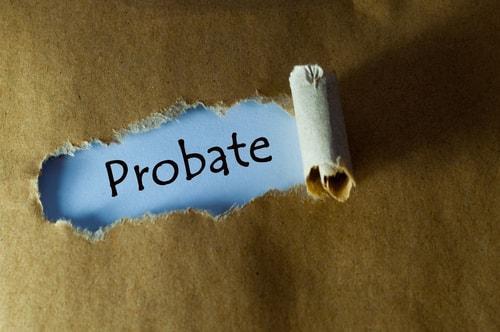Understanding the Purpose of Probate
 If you have started creating your own estate plans or you have recently lost a loved one, you may have heard the term “probate.” This term is used to refer to the legal proceedings which transfers a deceased individual’s assets to heirs. If the deceased person, or decedent, has signed a will before he or she died, the probate courts determine whether or not the will is enforceable and oversee the distribution of the decedents’ assets. If a decedent does not have a will or the will is not enforceable, the probate process is much more involved. Because it can often be time-consuming and expensive, many people try to avoid probate through careful estate planning.
If you have started creating your own estate plans or you have recently lost a loved one, you may have heard the term “probate.” This term is used to refer to the legal proceedings which transfers a deceased individual’s assets to heirs. If the deceased person, or decedent, has signed a will before he or she died, the probate courts determine whether or not the will is enforceable and oversee the distribution of the decedents’ assets. If a decedent does not have a will or the will is not enforceable, the probate process is much more involved. Because it can often be time-consuming and expensive, many people try to avoid probate through careful estate planning.
What Happens During Probate?
The probate process differs from estate to estate depending on several factors. If the decedent had a will, the judge will ensure that the will meets the criteria required by Illinois probate law. Wills must be written and signed by the deceased person. If evidence exists to suggest that the deceased person wrote their will under undue influence or that the will is fraudulent in some way, the will may be invalidated.
If the decedent had identified an executor in their estate plans, the judge will assign this person several responsibilities. The executor must distribute the decedent’s assets according to the will, notify the decedent’s creditors of the decedent’s death, pay the decedent’s final bills, and file income taxes on their behalf. Generally, the executor role falls to the decedent’s next of kin if there was no prior determination regarding this important responsibility.
How Can I Avoid Probate?
Some people want to avoid the probate process. One way to do this is to use an estate planning tool other than a will to distribute your assets to heirs. A revocable living trust is a popular choice for individuals who do not want their estate to go through probate. Placing property in a trust makes the property no longer part of your probate estate because it is technically owned by a trustee. Your trustee is responsible for distributing this property to your heirs according to your directions. There are other estate planning tools that similarly allow your estate to avoid the probate requirement. A qualified estate planning attorney can help you determine the specific estate planning documents you need to achieve your financial and personal objectives.
Contact a Lombard Probate Attorney
If you want to learn more, contact an experienced DuPage County estate planning lawyer at A. Traub & Associates. Call 630-426-0196 to schedule a confidential consultation with our team of dedicated professionals.
Sources:
https://www.americanbar.org/groups/real_property_trust_estate/resources/estate_planning/the_probate_process.html
https://www.thebalance.com/what-is-probate-3505244












